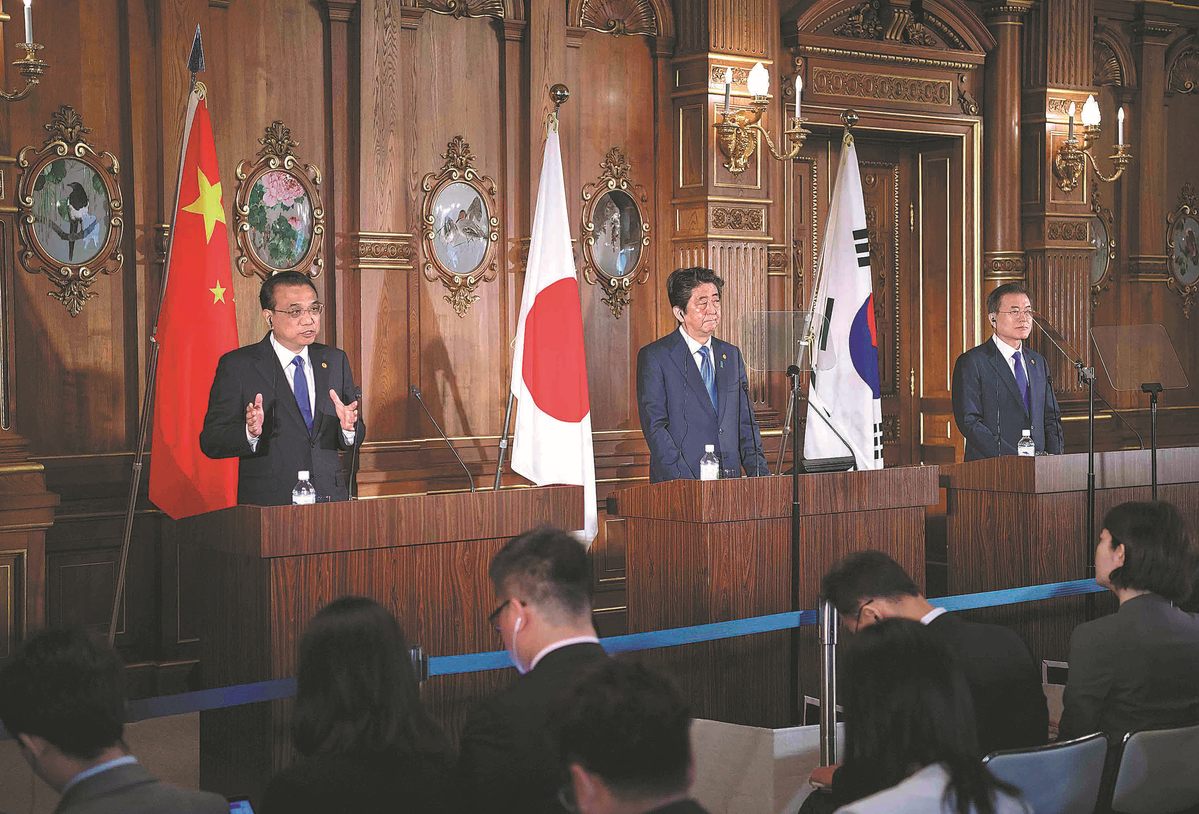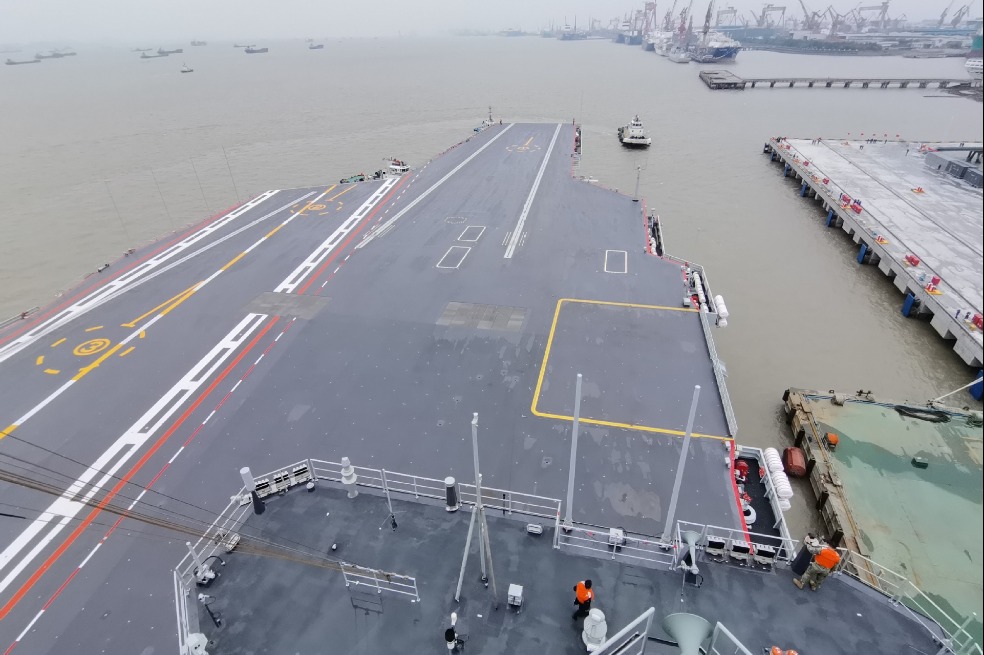China, Japan and ROK can all benefit from FTA
China Daily | Updated: 2019-07-10 07:53

Editor's Note: The Center for Northeast Asian Studies at Pangoal Institution, a Beijing-based public policy think tank, released a report on China-Japan-Republic of Korea Free Trade Area negotiations in June. Excerpts follow:
The trade protectionist and unilateral measures adopted by the United States since 2017 are a serious challenge to economic globalization and the free trading system. To meet this challenge and boost their economic growth, China, Japan and the ROK have been working to strengthen cooperation mechanisms in the Asia-Pacific region by establishing the China-Japan-Korea FTA and the Regional Comprehensive Economic Partnership.
But the three countries differ on the nature of the trilateral FTA. China regards regional economic cooperation as an important part of its opening-up strategy and has been actively promoting the establishment of the FTA, while Japan, as a developed country, seems more interested in establishing mega-regional FTAs, instead of traditional free trade zones, with improved levels of coordination among "like-minded" member countries beyond East Asia.
Japan has two principal concerns. The first is economic concern, perhaps because Japan expects to gain less than China and the ROK from the FTA. According to a joint study by Beijing, Tokyo and Seoul, the biggest beneficiary of the FTA will be the ROK, whose GDP will increase by 2.5-3.1 percent, whereas China's and Japan's GDP will increase by only 1.1-2.9 percent and 0.1-0.5 percent respectively.
Japan's other concern is national security. While establishing an FTA, Japan chooses partners with whom it can build mutual trust and thus strengthen its security environment. But since the three sides have some territorial disputes left over by history, Tokyo is somewhat reluctant to establish an FTA with Beijing and Seoul.
Instead, Tokyo prefers to go ahead with the Comprehensive and Progressive Agreement for Trans-Pacific Partnership, although Washington has pulled out of the original TPP agreement. Which suggests the most important factor for Japan when it comes to an FTA is strategic, not economic.
For the ROK, it believes the trilateral FTA is a "win-win-win" proposition. However, it is still worried that the FTA could increase its trade dependence on China and thus make it more vulnerable to external developments.
At the 7th China-Japan-ROK leaders' meeting last year, the three countries agreed to expedite the negotiation process of the FTA. Generally speaking, China, Japan and the ROK have no fundamental differences in establishing a high-level, high-standard free trade agreement. But while China wants such an agreement to open up their respective markets for each other, Japan and the ROK expect it to address goods and service trade and investment issues.
Besides, there is a lack of mutual trust among the three sides when it comes to security issues due to historical reasons, which has allowed extraterritorial factors - for instance, the objections of the West led by the US to a trilateral FTA - to influence the talks among Beijing, Tokyo and Seoul.
Still, the prospects for establishing a trilateral FTA remain bright, because it would lower tariffs and simplify customs procedures and transaction costs for the three sides.
In other words, the establishment of an FTA would help create a broader market and integrate the three sides' industrial chains, thus improving the regional production network. The FTA will also expand market access for investments, providing a stable, transparent and predictable policy framework and business environment for the three countries.
Moreover, the RCEP negotiations, in which the three parties have participated, have made substantial progress. So China should focus on the following aspects.
It should demonstrate goodwill to advance the negotiation process, and narrow its differences with Japan and the ROK so as to reach a high-level, mutually beneficial free trade agreement. China should also strengthen comprehensive planning and coordination to improve its business environment to further open up its economy, as well as address the genuine concerns of Japan and the ROK.
Apart from participating in other regional FTAs to raise its standing, China should also be open to the idea of joining the CPTPP, because the new Trans-Pacific partnership can help more Chinese companies to go global and help stabilize the world free trade system.
In particular, China, Japan and the ROK should deepen economic and trade cooperation and establish trilateral industrial parks in places such Dalian and Qingdao in China, Busan in the ROK, and Fukuoka in Japan, by giving full play to their respective economic strengths.
The three sides can also strengthen cooperation in emerging industries such as 5G technology, particularly because they believe it is necessary to promote technology standardization and reduce roaming charges in the region.
Environmental protection is another area in which the three sides can deepen cooperation. For example, they can work together to help reduce air pollution, better protect marine ecology, and prevent water and soil contamination, which in turn can become a cohesive factor for establishing a trilateral FTA.
Moreover, they can strengthen financial cooperation, which would help them to establish a common financial market. Therefore, China and Japan should deepen cooperation in the mutual fund market, and together with the ROK, they should work to further open up their respective financial markets to each other, in order to establish a rule-based, transparent, energetic and resilient Northeast Asian financial market.
The views don't necessarily represent those of China Daily.
























